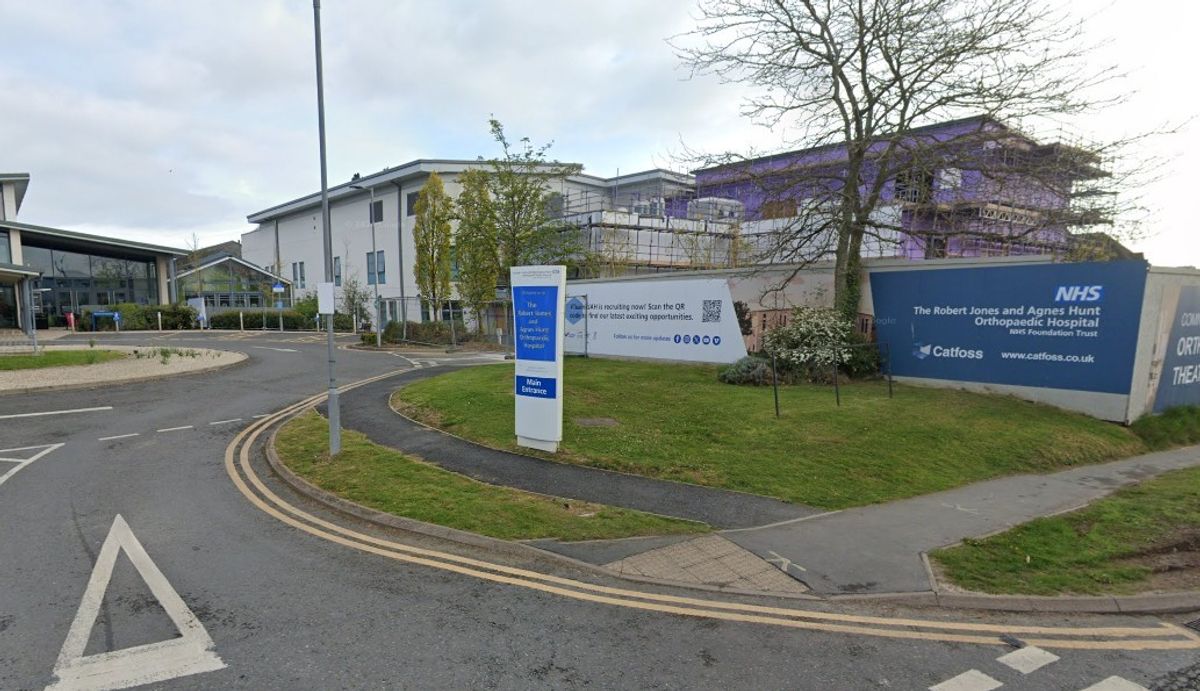A nurse said she felt “humiliated” by a “nitpicking” ward manager at a Shropshire hospital.
Deborah Povall is currently facing a Nursing and Midwifery Council (NMC) Substantive hearing into allegations of how she treated staff and the care patients received on Powys Ward at the Robert Jones and Agnes Hunt (RJAH) Orthopaedic Hospital in Gobowen, Shropshire.
Ms Povall has admitted working excessive hours but denies all of the other alleged incidents between 2017 and 2019.
Resuming the hearing on Tuesday (August 26), the panel heard from Elinor Jones, who previously worked with Ms Povall.
Mrs Jones said that, on occasions, she felt humilated by Ms Povall and the ward manager would “nit-pick” at things.
“If there was an issue that I had done something wrong or not properly, it would be addressed in front of other staff members,” said Mrs Jones.
“It felt quite humuilating. It was never done sensitively away from other people.
“It felt it got worse over time. Initially, I could take the feedback and criticisms as learning, but then it got quite personal after a period of times.
“It felt that it was always me who would get the brunt of it at times, and I don’t think I was the only staff member.
“I just never knew which Deb I would be getting – I didn’t know if I was getting the really supportive Deb or I was going to get the opposite who could be really unkind and really difficult to work with at times.
“It would make me feel like I couldn’t ask questions and I would have to go to other staff to get those answers.”
 The Robert Jones and Agnes Hunt Orthopaedic Hospital in Gobowen, near Oswestry. Picture: Google
The Robert Jones and Agnes Hunt Orthopaedic Hospital in Gobowen, near Oswestry. Picture: Google
The panel was told that when the ward had 28 patients during a night shift, there would be two registered nurses to look after them, or three if it went over that number. However, Mrs Jones said that on one particular shift, there were 29 patients but only two nurses, and was told Ms Povall had accepted the extra one.
Mrs Jones added that between 10 and 12 were post-operative patients and two nurses were needed to adminster a controlled drug to one of them. She said that, during the shift, she found out there were empty beds in the ward next door and didn’t feel hers was safe.
However, it was not reported on the “Daytix” incident reporting system that is used by hosptials and other healthcare organisations to manage risks and learn from adverse events, near misses, and other safety concerns. This, she said, was because she was worried about any repercussions.
Mrs Jones – who said that Ms Povall would work five or six days a week and would sometimes look tired – explained how a patient who had low oxygen levels and needed a blood transfusion deterioated on the ward and was eventually transferred to the Intensive Care Unit.
“I was wondering why the patient was still on the ward because they appeared quite unwell,” said Mrs Jones.
“I was told, ‘they just need a transfusion, they’ll be fine’. I had the impression that Deb thought we could manage this patient on the ward.”
Mrs Jones also told the panel that if certain things were not done at the correct time, Ms Povall would be cross, whereas other wards “seemed more relaxed.”
“If everyone hadn’t been offered a wash by 11 o’clock it was as if it caused a lot of chaos and Deb wouldn’t have been happy about that,” said Mrs Jones.
A former RJAH chief nurse appears at the NMC hearing
The hearing also heard from Sarah Bloomfield, a former chief nurse at RJAH. She was made aware of the allegations made against Ms Povall and arranged to meet affected staff members at a local pub.
“That was at the request of staff,” said Mrs Bloomfield.
“It was through another person in a leadership role who staff had a lot of trust because they had known them for a long time.
“When I was made aware of concerns, I suggested we meet and was happy to meet them in a group because that was how they felt safer. And I asked the staff to identify a place where they would feel safe to be able to meet with me and have that conversation.
“Their view was they wouldn’t be safe to meet anywhere on site, and the pub in which we met was an establishment that had been regularly used by the Trust because it had a meeting room which was private and free to use.
“I think that was why the staff chose that particular location and we were able to meet in a separate area so no one could overhear or see us. We talked through the options with the staff about what could happen next.
“The staff were concerned that Deborah would see them and were really anxious and didn’t feel psychologically safe. They were afraid when raising concerns in the pub. One member of staff came slightly later because they had been talking to Deborah while the others left.
“And when the member of staff arrived, she was extremely anxious and felt she had followed in her car and was shaking. They were worried that if Deborah had felt out, there would be repurcussions for them.”
The staff were asked to put their concerns in writing and a formal investigation was required. Ms Povall was subseqently suspended pending the outcome.
Mrs Bloomfield said staff were concerned that the ward was operating on a much higher level of acute dependancy than the wards around them, which increased the risk to patient safety.
She also felt that Powys Ward had an “outdated” style of working in that it had a “rigid, task-based” model rather than prioritising patients based on their needs.
“Sometimes we do have to make a list of taks and get on with it,” said Mrs Bloomfield.
“You make a list, start one end of the ward and work your way through. But as nursing evolved, especially in the evening, it’s moved into a more individual needs-based approach. That is far more important than ‘lets tick that box.’
“I would describe it as rigid if it’s not able to flex in terms of patient needs. From my discussions with the staff, there were limited opportunites to flex and they said they were unable to priorities patient need over what needed to be done.”
The hearing continues.
